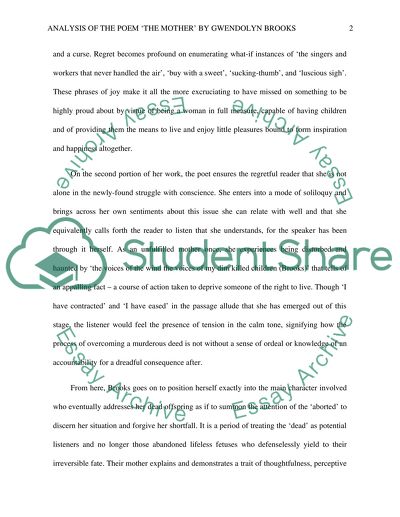Cite this document
(“Analysis of the Poem The Mother By Gwendolyn Brooks Literature review”, n.d.)
Analysis of the Poem The Mother By Gwendolyn Brooks Literature review. Retrieved from https://studentshare.org/literature/1429304-analytical-essay
Analysis of the Poem The Mother By Gwendolyn Brooks Literature review. Retrieved from https://studentshare.org/literature/1429304-analytical-essay
(Analysis of the Poem The Mother By Gwendolyn Brooks Literature Review)
Analysis of the Poem The Mother By Gwendolyn Brooks Literature Review. https://studentshare.org/literature/1429304-analytical-essay.
Analysis of the Poem The Mother By Gwendolyn Brooks Literature Review. https://studentshare.org/literature/1429304-analytical-essay.
“Analysis of the Poem The Mother By Gwendolyn Brooks Literature Review”, n.d. https://studentshare.org/literature/1429304-analytical-essay.


